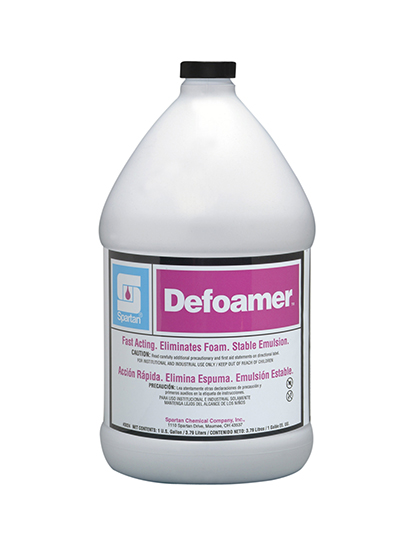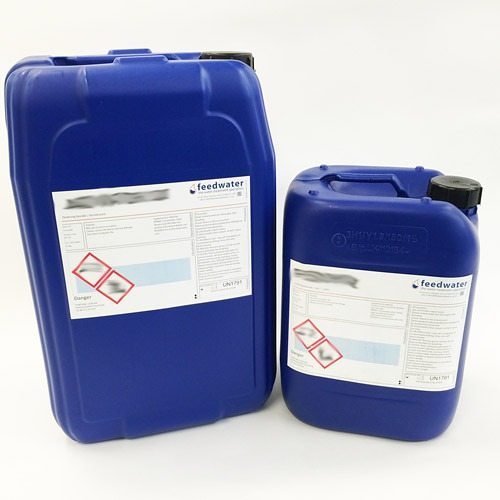The Ecological Impact of Chemical Defoamer and Eco-Friendly Alternatives
Wiki Article
Discover the Top Reasons You Need a Chemical Defoamer for Effective Foam Control
Chemical defoamers offer as vital agents that reduce foam development, therefore enhancing processes in industries such as food manufacturing, pharmaceuticals, and wastewater therapy. As we explore the diverse benefits of chemical defoamers, it comes to be obvious that their role prolongs past plain foam reduction, influencing total efficiency in ways that may not be right away evident.Enhanced Functional Efficiency
Exactly how can the efficient use chemical defoamers considerably boost operational effectiveness in various commercial procedures? The existence of foam can hinder production by blocking tools, minimizing capability, and making complex process control. Chemical defoamers act as an important service in minimizing these challenges. By lowering surface stress, they promote the fast collapse of foam, permitting for smoother operation and minimizing downtime (Chemical Defoamer).In industries such as food and drink, pharmaceuticals, and wastewater treatment, the application of defoamers boosts process security and product quality. For example, in fermentation procedures, controlling foam generation is vital for making best use of return and efficiency. In addition, the usage of defoamers can result in more efficient mixing and oygenation, leading to improved reaction times and total performance.
Moreover, when foam is efficiently managed, it lowers the risk of overflow and contamination, ensuring conformity with security and high quality standards. This not only enhances operations yet likewise enables better resource use. Eventually, the integration of chemical defoamers into industrial procedures cultivates a more efficient process, maximizing outcome while preserving high-quality criteria. Therefore, their function in boosting operational effectiveness can not be overstated.
Cost Cost Savings and Resource Management

In many applications, extreme foam can trigger overuse of chemicals, leading to unneeded expenditures. By regulating foam levels, services can optimize their chemical input, thereby lowering functional costs.
In addition, reduced foam in processing systems can improve the general throughput, enabling facilities to raise production ability without incurring added expenses - Chemical Defoamer. This effective source administration translates right into significant financial advantages, allowing companies to allocate funds toward technology or development. In recap, the combination of chemical defoamers right into commercial processes fosters a more economical and resource-efficient atmosphere, eventually sustaining organizational growth and sustainability
Improved Item High Quality

Making use of chemical defoamers plays a vital duty in boosting product quality throughout various industries. Too much foam can lead to inconsistent product formulas, impacting the last qualities of goods such as paints, coverings, food products, and drugs. By mitigating foam development, chemical defoamers assist in smoother production procedures, making sure that solutions remain uniform and satisfy specific quality requirements.
In browse around this web-site the food and drink market, as an example, the visibility of foam can influence the clarity and preference of items, ultimately influencing consumer fulfillment. Chemical defoamers aid maintain the wanted texture and appearance, consequently boosting the overall quality of the end product. In the production of finishes and paints, foam can lead to problems such as pinholes and poor attachment, threatening the item's performance.
Additionally, making use of defoamers can boost the effectiveness of procedures like fermentation and emulsification, which are crucial for attaining preferred item qualities. By improving manufacturing and making certain consistent high quality, chemical defoamers not only improve the end product but likewise add to a positive brand name online reputation. Thus, investing in reliable foam control options is crucial for any type of organization intending to deliver high-grade products consistently.
Devices Defense and Longevity
Reducing foam production is necessary for securing equipment and guaranteeing its durability in numerous commercial applications. Extreme foam can lead to a variety of functional issues, consisting of equipment damage, enhanced upkeep prices, and unintended downtime. When foam builds up, it can trigger overflow, resulting in spills that endanger the honesty of machinery and surrounding areas.In addition, foam can block pumps and sensing units, which can hinder performance and performance. In serious cases, it can result in the failure of elements, requiring pricey repairs or replacements. By utilizing a chemical defoamer, firms can properly minimize foam development, hence safeguarding their devices from the detrimental impacts of foam-related issues.
In addition to stopping damage, effective foam control can dramatically improve the functional life-span of equipment. Investing in a high quality chemical defoamer is a proactive method for shielding equipment and cultivating durability in industrial settings.
Adaptability Across Industries
Chemical defoamers play a critical duty in various markets, successfully resolving foam-related difficulties Get More Info throughout diverse applications. Their versatility appears in industries such as food and beverage, drugs, and wastewater treatment, where foam can hinder procedures and minimize effectiveness. In the food sector, defoamers make certain smooth manufacturing by stopping foam development throughout blending, fermentation, and bottling, therefore maintaining item quality and uniformity.
Moreover, in wastewater treatment facilities, chemical defoamers are used to regulate foam during the oygenation procedure, advertising ideal microbial activity and improving the general treatment performance. Their capacity to work efficiently in high-temperature and high-shear atmospheres further highlights their adaptability.
Final Thought
In final thought, the use of chemical defoamers is important for effective foam control throughout different sectors. The versatility of defoamers enables for widespread application in food production, pharmaceuticals, and wastewater treatment, ultimately adding to lasting growth and the maintenance of high operational standards (Chemical Defoamer).Chemical defoamers offer as important agents that reduce foam development, thereby improving procedures in sectors such as food manufacturing, pharmaceuticals, and wastewater therapy. As we discover the multifaceted advantages of chemical defoamers, it comes to be evident that their role expands past simple foam reduction, influencing total performance in means that may not be promptly evident.
By reducing foam development, chemical defoamers help with smoother manufacturing processes, guaranteeing that solutions continue to site be consistent and fulfill specified high quality criteria.
By utilizing a chemical defoamer, business can effectively minimize foam development, thus safeguarding their equipment from the damaging effects of foam-related problems.
In conclusion, the use of chemical defoamers is vital for effective foam control across various industries.
Report this wiki page